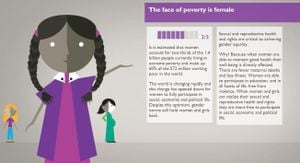The world stage has once again flared up with urgency, as the G20 Summit convened on November 18, 2024, in Rio de Janeiro, Brazil, drawing attention to the pressing humanitarian crises stemming from the conflicts in Gaza and Ukraine. Leaders from the world’s largest economies gathered to discuss and coordinate responses to these pivotal global issues, with Brazilian President Luiz de Silva leading the charge for greater humanitarian intervention.
The summit's final declaration, crafted over rigorous negotiations, emphasized the dire need for expanded humanitarian aid to the besieged Gaza Strip. The document calls for the ‘urgent need to expand the flow of humanitarian assistance’ and advocates for lifting any barriers obstructing aid delivery. Yet, it conspicuously avoids directly naming Israel and Egypt, the two nations with control over Gaza's borders. Instead, the emphasis remains strictly on humanitarian needs without shifting blame or demanding accountability from Israel, reflecting the complex geopolitical realities at play.
International discussions surrounding Gaza are chaotic, marked by high tension and polarized views. While the call for humanitarian assistance garnered unanimous approval from G20 leaders, it was noted with concern by critics who argue it lacks specific measures for implementation. Brazil’s effort to portray itself as a humanitarian leader contrasts sharply with the significant critiques from Argentine President Javier Milei, who, though he signed the declaration, did so with declared reservations, particularly around its vague language. This tension showcases the broader fissures within G20 politics, especially on contentious issues of international intervention.
Aside from the complicated narrative surrounding Gaza, the conflict in Ukraine cast its own long shadow over discussions. The final document’s reference to Ukraine was more timid, highlighting humanitarian consequences rather than asserting responsibility. It calls for ‘a just and sustainable peace’, echoing similar sentiments expressed at past G20 gatherings, though none seemed to carry the weight of actionable propositions. European delegates, especially, pushed for more stringent condemnations against Russia, yet the Brazilian presidency sought to maintain neutrality, noting the delicate balance countries must uphold.
The summit also served as grounds for bipartisan discussions on various topics extending beyond conflicts. One significant notion introduced was the proposal for global tax initiatives aimed at billionaires. While promoting fiscal equity and social justice, the proposal faced pushback, particularly from Milei's administration, which has expressed reluctance to adopt measures deemed overly progressive.
Body image and representation also found their way onto the agenda. Amid global discussions surrounding gender equality, the declaration included reaffirmations of commitments to gender parity, encouraging ‘women-led development’ and recognizing the multifactorial barriers women and girls continue to face worldwide. The declarations are part of G20 leaders’ wider initiative to respect and promote human rights, alongside acknowledgment of LGBTQ+ rights, bolstering the narrative of inclusion.
While the declarations made clear the serious humanitarian focus of the summit, they also came under scrutiny for their effectiveness. Viviana Santiago from Oxfam remarked on the practicality of Brazil's initiatives, drawing connections between the political engagement exercises at the summit and actual alleviation of poverty-related issues across affected regions.
During the summit, President Biden also made waves, easing restrictions on Ukraine’s use of U.S. military hardware. This move was seen as part of continued support for Ukraine amid its conflict with Russia. Nonetheless, opponents questioned whether this shift would significantly alter the dynamics on the battleground or merely adjust the rhetoric of support from the West.
Simultaneously, Russian Foreign Minister Sergey Lavrov was present at the summit, representing President Vladimir Putin, who chose not to attend. Lavrov took the opportunity to forge stronger ties with other BRICS nations, including China, emphasizing the importance of international collaboration among countries sidelined by Western policies.
The G20 leaders also raised the topic of reforming the United Nations Security Council, demonstrating awareness of the need to update international governance structures for enhanced global representation. The proposed changes included adding permanent seats for African countries and addressing representation concerns from small island nations, advocating for a more balanced global decision-making process.
The summit culminated with demonstrations outside the venue, where activists urged leaders to recognize and act upon the dire consequences of hunger and climate change affecting millions. Protests featured symbolic displays, including plates representing those afflicted by hunger, sharpening the focus on humanitarian concerns as discussions unfolded behind the scenes.
These intertwined themes—humanitarian assistance, geopolitical negotiations, calls for accountability, and social justice—exemplified the complex layers of diplomacy at play. The G20 Summit, with its ambitious agenda for alleviating pressing crises worldwide, stands as both a beacon of hope and a mirror reflecting the challenges of uniting diverse leaders under common goals. Amid worsening global crises, the collective decisions made within these corridors will reverberate far beyond Rio, influencing political narratives and humanitarian outcomes across the globe.



